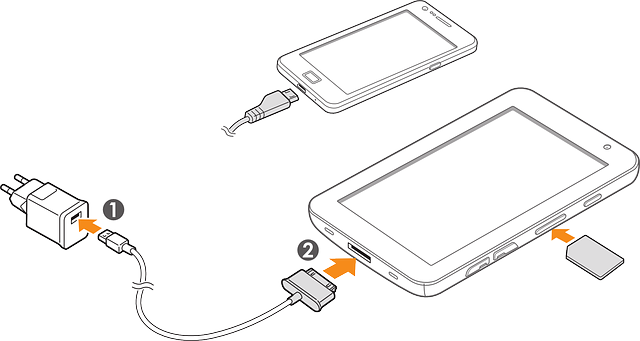New Jersey's Do Not Call regulations protect residents from unwanted telemarketing calls. Businesses must follow guidelines on call frequency, timing, and consent. Engaging unwanted call lawyers or attorneys in New Jersey offers compliance guidance, tailored consent form creation, and legal representation for disputes. Reputable unwanted call law firms provide these services. Ignoring Do Not Call preferences can lead to legal issues, with consumers entitled to compensation. Advanced call tracking, monitoring, data analysis, and AI can help businesses ensure adherence. Staff training, detailed records, and regular audits are essential. Engaging a specialized unwanted call lawyer in New Jersey helps avoid legal pitfalls and fosters positive client relationships.
In today’s digital age, compliance with Do Not Call regulations is crucial for local businesses aiming to maintain customer relationships while respecting privacy. New Jersey has specific laws in place, and understanding them is essential to avoid legal implications. This article guides you through the intricacies of unwanted calls, offering insights on call tracking, monitoring systems, and best practices for compliance. Discover how an experienced unwanted call lawyer in New Jersey can ensure your business stays within legal boundaries and fosters trust with clients.
Understanding Do Not Call Regulations in New Jersey
In New Jersey, Do Not Call regulations are designed to protect residents from unwanted telemarketing calls. These laws are strictly enforced, and compliance is crucial for local businesses to avoid legal repercussions. The state has established clear guidelines regarding permissible call practices, with restrictions on the number of calls, specific times for calling, and requirements for obtaining prior consent.
Businesses in New Jersey must ensure they have proper documentation and processes in place to confirm consumer opt-out requests. Engaging an experienced unwanted call lawyer or unwanted call attorney in New Jersey can help local companies navigate these regulations effectively. Reputable unwanted call law firms in the state offer specialized services, providing guidance on compliance, crafting tailored consent forms, and representing businesses in case of any legal disputes related to Do Not Call violations.
Identifying Unwanted Calls and Their Legal Implications
Unwanted calls, often considered a nuisance, can have significant legal implications if they violate Do Not Call regulations. In New Jersey, businesses are required to respect consumer choices regarding telemarketing calls, as outlined by state laws and federal guidelines. When a business makes unwanted calls despite being placed on the National Do Not Call Registry or local “Do Not Disturb” lists, it may face legal consequences.
Consumers in New Jersey have the right to seek legal recourse against persistent violators. Engaging an experienced unwanted call lawyer or unwanted call attorney from a reputable unwanted call law firm in New Jersey can help individuals protect their rights and secure compensation for any harassment or inconvenience caused by unsolicited calls. These professionals are well-versed in the intricacies of unwanted call laws and can guide victims through the process of filing complaints and pursuing legal actions against offending companies.
Implementing Effective Call Tracking and Monitoring Systems
In today’s digital era, local businesses must stay vigilant in navigating Do Not Call regulations to avoid unwanted legal repercussions, as an unwanted call lawyer New Jersey can attest. Implementing robust call tracking and monitoring systems is a strategic move towards compliance. These systems enable businesses to identify and log each incoming call, allowing them to distinguish between legitimate prospects and violations of the Do Not Call list. With advanced software, companies can track caller IDs, analyze call patterns, and even use AI-powered tools to flag potential non-compliance issues instantly.
Effective monitoring goes beyond simple tracking. It involves analyzing call data to identify trends and sources of unwanted calls. By pinpointing recurring offenders or identifying peak hours for unauthorized calls, businesses can proactively adjust their sales strategies. Moreover, having an unwanted call attorney New Jersey on standby ensures that any legal questions or disputes are promptly addressed, fostering a culture of compliance within the company.
Strategies for Compliance: Best Practices for Local Businesses
To effectively comply with Do Not Call regulations in New Jersey, local businesses should implement best practices that strike a balance between customer relationships and legal obligations. Firstly, invest in comprehensive training for staff to ensure they understand the rules and implications of making unwanted calls. This includes recognizing and respecting consumer choices regarding call preferences and opting-out requests.
Secondly, maintain meticulous records of all caller activity, including date, time, purpose, and recipient consent. Utilize technology solutions like automated calling systems that offer options for consumers to opt-in or opt-out easily. Regularly audit your call lists to identify and rectify any violations promptly. Engage the services of a reputable unwanted call lawyer or attorney in New Jersey, such as those at a leading law firm specializing in this area, to stay updated on legal requirements and seek guidance when needed.
The Role of an Unwanted Call Lawyer/Attorney/Law Firm in Ensuring Compliance
In today’s digital age, where communication channels are diverse and extensive, navigating Do Not Call regulations is more complex than ever. This is especially true for local businesses in New Jersey, which must adhere to strict guidelines to avoid unwanted phone calls that could lead to legal repercussions. An unwanted call lawyer, attorney, or law firm specializing in this area plays a pivotal role in ensuring compliance. They possess a deep understanding of the relevant laws and regulations, enabling them to guide businesses through the complexities of the Do Not Call list.
These professionals can offer crucial advice on how to effectively manage customer contact, implement opt-out mechanisms, and maintain accurate records. By enlisting the help of an unwanted call lawyer in New Jersey, businesses can protect themselves from potential fines and lawsuits, fostering a positive relationship with their customers while adhering to legal requirements. This proactive approach is essential for maintaining a strong reputation and ensuring long-term success in a competitive market.






